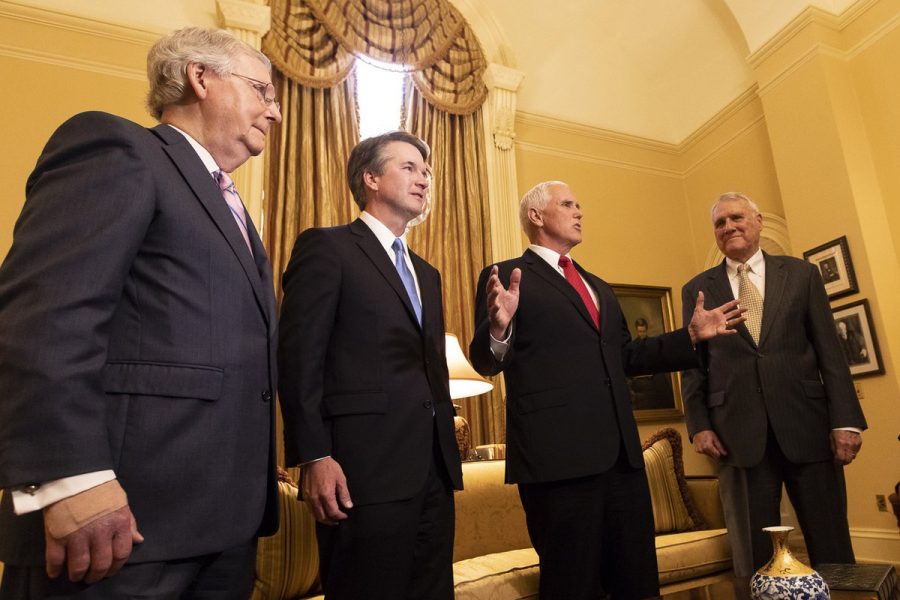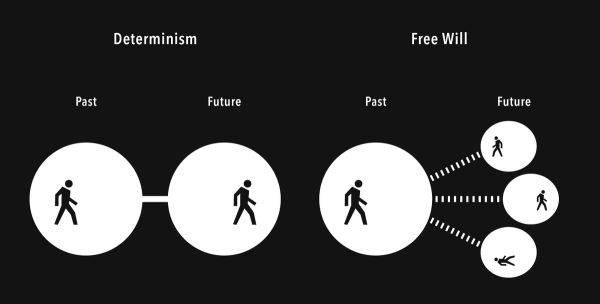Legislative Logjam: Playing Politics With the Supreme Court
Photo courtesy via Wikimedia Commons under Creative Commons license.
Mike Pence, Brett Kavanaugh, Mitch McConnell, and Jon Kyl.
In recent weeks, the country has been bitterly divided by the spectacle of one of the most partisan, brutal confirmation battles in the modern history of the Supreme Court. One of the reasons for this division is the fact that President Trump’s latest nominee, Brett Kavanaugh, is exactly the kind of young conservative jurist who would, without doubt, change the makeup of the high court for decades. While we saw some of the same dynamics at play with the Neil Gorsuch hearings in 2017, the Kavanaugh confirmation fight has even longer-term implications for the future of the court and the country. While Gorsuch replaced Antonin Scalia–a diehard conservative–on the bench, Kavanaugh is set to replace the significantly more moderate Anthony Kennedy. While the high stakes and pressing political consequences have come to the fore in recent days, it is worthwhile to meditate on how we got to this juncture. How did the Supreme Court, ostensibly the impartial arbiter of Constitutional application, become a political prize to be wielded by the party in power? Are extreme measures necessary to maintain some level of partisan “balance?” Will the Supreme Court ever regain a modicum of political detachment in the public perception?
For Democrats, the moment that the Supreme Court lost its veneer of credibility occurred in early 2016 after the death of Antonin Scalia. Despite President Obama’s negotiations with senior Senate Republicans to find an acceptable compromise Supreme Court candidate, Majority Leader Mitch McConnell elected to deny Obama’s nominee a hearing, arguing that the circumstances of the election year meant that Scalia’s seat should be filled by the next President. This decision, aside from being an alarming example of judicial brinkmanship, was arguably one of the most daring gambles of the 2016 election. It gave the as-yet undetermined Republican candidate something to run on in the autumn while preventing Obama from moving the court leftwards. When Donald Trump improbably won the presidency in November 2016, McConnell’s bet paid off in spades — and Anthony Kennedy’s retirement in June 2018 just magnified the winnings. Supreme Court nominations also serve as a boon for a divided Republican party because they are one of the few unifying factors that bind the party’s Trumpist wing and the GOP establishment. Even Senators like Lisa Murkowski and Susan Collins, two moderate Republicans who support abortion rights, generally have no problem voting for the party’s preferred Supreme Court nominees.
Since the Republicans clearly have the votes to confirm Kavanaugh (having nuked the filibuster during the Gorsuch confirmation), the hearings are little more than political theatre — a place where contenders for the Democratic nomination in 2020 can paint themselves as heroes for their petty obstructions. While the nomination raises real pressing questions about how the Supreme Court will decide such issues as abortion rights and gun control, the confirmation process has clearly devolved into the basest partisan bickering. Some Democrats have even gone as far as to suggest a 21st-Century resurrection of the 1937 Judicial Reform Act. FDR’s infamous court packing scheme failed then, but the fact that some are considering it again bodes ill for the sanctity of and national respect for the Supreme Court. The Court does not have an army; it does not control the governmental purse; its power is derived almost entirely from the credence individuals, state governments, and the federal government lend to its decisions. If this foundation of trust is destroyed, the highest court in the land loses all of its effective power.
While one might not individually agree with the Supreme Court’s decisions — and while those decisions might become steadily more disagreeable when Judge Kavanaugh takes his place on the bench — it is vital to remember that the Supreme Court’s legitimacy is a serious thing to trifle with. Ultimately, it doesn’t matter who started the dangerous game of judicial roulette that led us to this tense juncture; the only thing that really matters is that we stop it.







